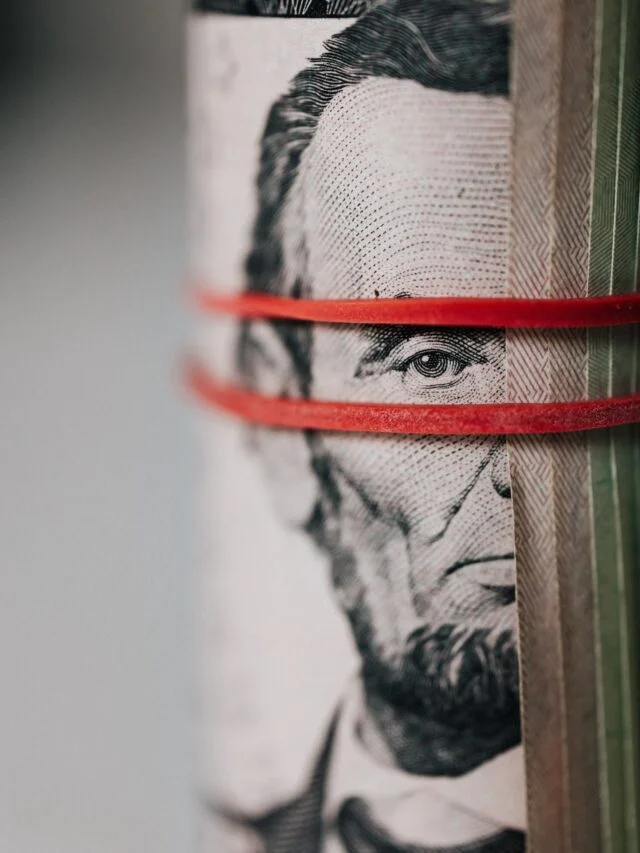
CPI, Jobless Claims Data, Bond rates, CD rates, war situation and many more drives US Money in various fields. Recessions are periods of economic contraction that typically last for more than a few months. They are often accompanied by high inflation, low consumer confidence, rising unemployment, and falling stock prices. Many economists are warning that the United States may be heading for a recession in 2024-25, due to supply chain disruptions, rising interest rates, Covid-19 uncertainty, and geopolitical tensions.
As the possibility of a US recession in 2024-25 looms, many investors are looking for opportunities to protect their portfolios and even capitalize on potential market downturns. While a recession can cause widespread economic disruption and financial stress, it can also create opportunities for savvy investors to make strategic investments that can pay off in the long term.
However, recessions also present some unique investment opportunities for savvy investors who can take advantage of lower valuations, higher yields, and increased demand for certain sectors and assets. Here are some of the best ways to invest during a recession in the United States:
Buy Quality Assets During a Recession
During a recession, it is important to focus on quality over quantity. Quality assets are those that have strong balance sheets, stable cash flows, competitive advantages, and loyal customers. These assets tend to perform better than average during downturns, as they can maintain or even increase their earnings and dividends. Some examples of quality assets include blue-chip stocks, investment-grade bonds, and real estate investment trusts (REITs).
According to a study by Fidelity Investments, high-quality stocks outperformed low-quality stocks by an average of 5.8% points per year during recessions between 1980 and 2018. Similarly, investment-grade bonds tend to have lower default rates and higher recovery rates than high-yield bonds during recessions. REITs also offer attractive income streams and diversification benefits during recessions. – Explore These REIT-Like Dividend Stocks We’re Eager to Invest In.
Diversify Your Portfolio During a Recession
Diversification is a key strategy to reduce risk and enhance returns in any market condition, but especially during a recession. Diversification means spreading your investments across different asset classes, sectors, regions, and styles. This way, you can reduce your exposure to any single source of volatility or loss, and benefit from the different performance patterns of various investments. Some examples of diversification include investing in stocks and bonds, domestic and international markets, growth and value stocks, and cyclical and defensive sectors.
According to a report by Vanguard, a diversified portfolio of 60% stocks and 40% bonds had an average annual return of 8.6% between 1926 and 2019, with a standard deviation (a measure of risk) of 10%. In contrast, an all-stock portfolio had an average annual return of 10.3%, but with a much higher standard deviation of 18.4%. An all-bond portfolio had an average annual return of 5.3%, with a standard deviation of 5.4%.
Dollar-Cost Average Your Investments During a Recession
Dollar-cost averaging is a technique that involves investing a fixed amount of money at regular intervals, regardless of the market price. This way, you can lower your average cost per share over time, as you buy more shares when prices are low and fewer shares when prices are high. Dollar-cost averaging also helps you avoid timing the market, which can be difficult and costly during a recession. You can dollar-cost average with new money or simply set your dividends to automatically reinvest in the security.
According to an analysis by Schwab Center for Financial Research, dollar-cost averaging can reduce volatility and improve returns over time compared to lump-sum investing.
For example, if an investor had invested $12,000 in the S&P 500 index at once on January 1st each year from 1993 to 2017, they would have ended up with $1.02 million by December 31st 2017. However, if they had invested $1,000 each month over the same period, they would have ended up with $1.08 million⁵.
Consider Actively Managed Funds During a Recession
For fund investors, consider shifting into more actively managed funds during a recession. Research shows that most actively managed funds outperformed their peers during the 2008 financial crisis and the 2020 Covid-19 recession.
Goldman Sachs: A 16-Year Revisit of the 2008 Housing Market Crash and Its Impact on Current Affordability.
Actively managed funds have the flexibility to adjust their portfolios according to changing market conditions and opportunities. They can also use various strategies such as hedging, short-selling, and leverage to enhance their returns or reduce their risk.
Invest in Precious Metals During a Recession
Precious metals such as gold and silver are often considered safe-haven assets during recessions, as they tend to retain or increase their value when other assets decline. Precious metals also serve as a hedge against inflation, currency devaluation, and geopolitical risks. You can invest in precious metals directly by buying physical bullion or coins, or indirectly by buying exchange-traded funds (ETFs), mining stocks, or futures contracts.
click here to learn more about ‘How to Invest in Gold’
These are some of the ways you can invest during a recession in the United States. Remember that recessions are inevitable but temporary phases of the economic cycle. They also create opportunities for long-term investors who can stay calm and disciplined during turbulent times.
Here’s a table of some key economic indicators and their values during some major US recessions in history
| US Recession | GDP Change (%) | Unemployment Rate (%) | Stock Market (Dow Jones) Change (%) |
| Great Depression (1929-1933) | -30 | 25 | -90 |
| Recession of 1945 | -12 | 1.9 | N/A |
| Recession of 1949-1950 | -1.7 | 7.9 | -23 |
| Recession of 1957-1958 | -3.7 | 7.5 | -14 |
| Recession of 1973-1975 | -3.2 | 9 | -45 |
| Recession of 1980-1982 | -2.7 | 10.8 | -22 |
| Dot-com Bubble Burst (2000-2002) | -0.3 | 6 | -25 |
| Great Recession (2007-2009) | -4.3 | 10 | -54 |
| COVID-19 Pandemic (2020) | -3.5 | 14.8 | -35 |
US recessions in history
Historically, some sectors, such as healthcare and consumer staples, have been relatively resilient during recessions, while others, such as technology and financial services, have experienced significant declines. However, the specific investment opportunities that may arise during a future US recession will depend on a variety of factors, including the severity and duration of the recession, government policies, and global economic conditions. In this context, it is important for investors to stay informed, diversify their portfolios, and seek professional advice to navigate the potential risks and opportunities associated with a US recession in 2023-24.
Don’t miss out on our captivating webstory – click below to explore now!
Compiled Research Source:
(1) What Is A Recession And How Will It Impact Your Investments?. https://www.forbes.com/sites/qai/2022/11/01/what-is-a-recession/
(2) How To Invest During A Recession – Forbes Advisor.
https://www.forbes.com/advisor/investing/how-to-invest-during-a-recession/
(3) Investment Portfolio Strategy in a Recession – Investopedia. https://www.investopedia.com/articles/08/recession.asp
(4) Recession: When Bad Times Prevail – Back to Basics: Finance & Development. https://www.imf.org/external/pubs/ft/fandd/basics/recess.htm
(5) Investors predict US recession in 2023 – World Economic Forum. https://www.weforum.org/agenda/2022/04/recession-investor-bank-pandemic-united-states/
-
What happens during a recession ?
The economy shrinks,
During a recession in America, there is a significant decline in economic activity, including a decrease in the Gross Domestic Product (GDP), rising unemployment rates, reduced consumer spending, and a slowdown in business activity. Businesses may experience decreased demand for their products and services, leading to decreased profits and potential layoffs.
The government may respond by implementing policies to stimulate the economy, such as increasing government spending, lowering interest rates, or providing tax relief. Recovery from a recession may take several years, and the impacts can have long-lasting effects on the economy and society. -
What are the best investments during a recession?
It’s important to remember that every investor’s situation is unique, and investment decisions should be based on personal financial goals and risk tolerance. It’s always a good idea to consult with a financial advisor to determine the best investment strategy during a recession.
-
Safest investment during a recession?
Investing during a recession can be challenging, but there are several options that can help protect your portfolio. One of the safest investments during a recession are those that are less volatile and more resilient to market downturns. These investments include defensive stocks, bonds, money market funds, dividend funds, utility funds, and ETFs.
Defensive stocks, such as those in the consumer staples, healthcare, and utilities sectors, tend to be less affected by economic cycles and can offer stability during a recession. Bonds are another safe investment option, especially government bonds and high-quality corporate bonds. They offer a fixed return, and in times of economic uncertainty, investors may flock to these safer investments.
However, it’s important to note that bonds may not offer high returns or protect against inflation, so other fixed-income or passive-income assets may be preferable. Investors should avoid companies that have weak financial performance, high debt, or low margins, as these are more vulnerable to economic downturns.
To minimize risk, it’s recommended to conduct thorough research and diversify your portfolio. Consulting with a financial advisor can help determine the best investment strategy for individual needs and risk tolerance. By investing wisely during a recession, investors can protect their portfolios and potentially generate returns in the long term. -
is gold a good investment in a recession?
Yes,
Gold is always the best investment of all time and also gold typically moves inversely to the value of the dollar and the stock market as well. One of the main reasons for this is that gold has intrinsic value.


